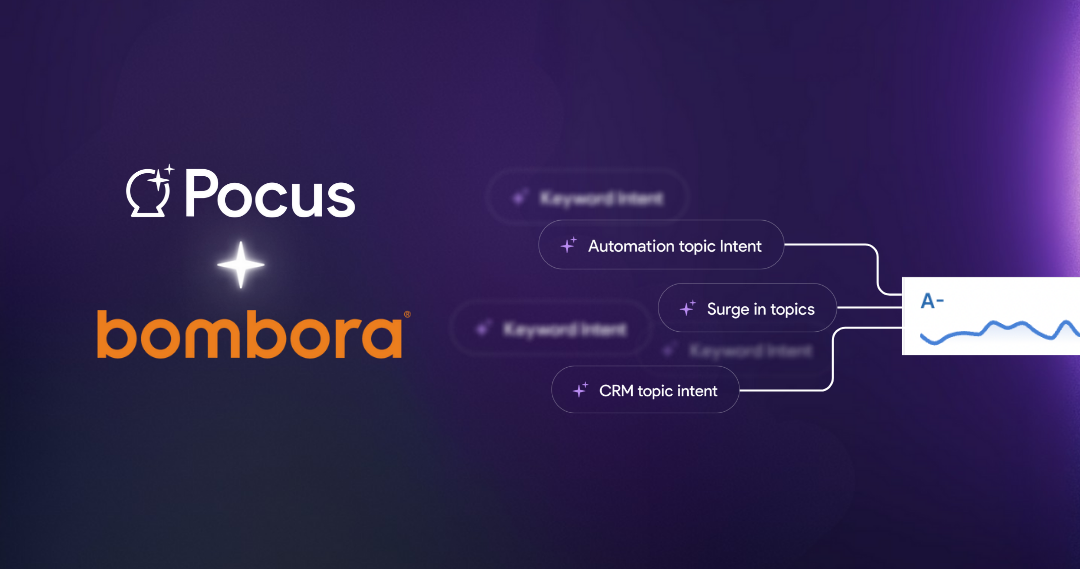Alexa, CEO of Pocus, hosts Product-Led Sales (PLS) “Ask Me Anything” sessions with PLS experts to share best practices, frameworks, and insights on this emerging category. These AMAs are an opportunity to ask PLS leaders any question — ranging from hiring to sales compensation to tech stack — in a low-key, casual environment.
The PLS AMAs are for members of the Product-Led Sales community, the go-to place to learn, discuss, and connect with go-to-market (GTM) leaders at product-led companies. The goal of the community is to bring together the most thoughtful and innovative GTM leaders to build the next generation of sales together.
Interested in joining? Request an invite here.
Now, keep reading for a recap of what we discussed in this week’s AMA chat.
Meet Ben, Chief Revenue Officer @ ngrok 👋
In our latest AMA we were excited to sit down and virtually chat with Ben Sabrin. Ben is the CRO at ngrok, which has become one of the most widely-used platforms for developing web hook integrations, building bots, running secure demos, testing on mobile devices, and more.
From former CRO at ScaleFT to VP of Sales at Okta and beyond, Ben’s background and resume are impressive.
So come along and learn with us from Ben’s years of experience building high-growth sales and business teams in this AMA recap, where we’ll share all the high points of our conversation, including:
- How Ben plans to use data to layer sales onto successful self-service motions
- What Ben’s looking for when hiring for sales
- Sales team structure and compensation at ngrok
- How PLS may lead to better customer relationships
- Why embracing ambiguity and change are key for early sales leaders
Ben’s Mission: Use Data to Layer Sales Onto ngrok’s Successful Self-Serve Motions
Ben is no stranger to Product-Led Sales or Poduct-Led Growth (PLG), having been in and around both movements for the majority of his career.
As early as 2002, Ben was working in companies where, in his words, “We gave away our product before it was fancy to give away our product.”
As such, he’s noticed the same conundrum that many in the PLS space face today. Giving free access to products makes you your number-one competitor when it comes to selling your product for a price!
This ties into the question he’s working to answer right now at ngrok: Where and how can a sales motion add even more value to move more users to paid, or higher-tier, packages?
It’s a question that’s especially pertinent at ngrok, since their free self-service as well as paid self-service motions have been very successful without sales or marketing. They already had approximately 🔥 five million developers on ngrok and 30,000+ paying customers 🔥 before Ben started standing up a sales team.
In order to accelerate beyond what the self-serve motions are already doing, Ben’s current mission is to follow the product data (which is how he first found Pocus) in order to identify things like buying signals, conversion metrics, and more.
Product data is critical to focusing his sales team on driving large, strategic transactions — not getting lost in what should be self-service transactions.
The Beautiful Thing About PLS? Building Business Relationships Faster
Without the PLS or open source approach, the sales process is much more involved.
When you’re selling what’s basically a black box that buyers can’t see or use, there’s a lot of work that goes into proving it does what you said it could do on your beautiful website, your sales PDFs, your trade show presentations, and so on.
But with open source and Product-Led Sales motions, people should be able to actually experience your product to see whether it solves their problem. This removes the proving phase and positions you to start discussing business relationships and the other problems you can help them solve much sooner.
“This is the beautiful thing about open source or product-led growth. The biggest innovation is not the fact that the product's free or the code's open source, it's that you're able to take the overall sales process and compress it. So now we can start talking about a business relationship earlier, instead of a proof of concept to prove your product works.”
What Ben Looks for in Sales Hiring 🧐
As Ben builds a whole new sales org at ngrok, the number-one thing he looks for is a builder mentality.
Why?
Because when there is minimal sales collateral to work with, your sales reps need to have the grit and the wherewithal to create their own playbooks.
That doesn’t mean the reps you’re looking at have to be young or have only worked in startups. What’s most important to Ben is that they have a history of being a self-starter who built what they needed for themselves along the way.
What else does Ben prioritize in sales reps?
- Natural curiosity
- Love of technology
- Ability to stimulate conversation around “the art of the possible” (love that!)
- Focus on solving customer problems, not simply hard-selling the product
How Does ngrok’s Sales Team Identify Signals?
Ben’s sales team being so early, they don’t yet have a precise trigger in the backend that helps them determine their most important signal: why somebody goes from a free account to a paid account.
So right now, they’re at a step all early sales teams should consider — undertaking a lot of feature engineering to truly get to the bottom of which elements will provide them with the signals they need.
Once they have a first pass at which features they want to measure, Ben’s plan is to use a tool like Pocus to build models around those features. If the results aren’t quite directionally correct, it just means more experimentation until their signals are mapped out.
As Ben says and as we know quite well, machine learning as well as the PLS approach takes time and ongoing trial and error to get right.
Sales Structure at ngrok
Ben admits that, just like so many product-led companies that are standing up new sales teams, they’re still figuring it all out at ngrok.
After loads of experimentation and learning, in 2023 they plan to start building on their existing team of account executives (AEs) with a force of inside sales representatives (ISRs). Ideally, they’re looking for folks in the sales engineering (SE) realm who want to dip their toes into sales, because ngrok is such a technical product.
Another role they’re planning to add in 2023 are “technical concierges” who will be support-focused folks who reach out to new, paid self-serve customers to help them quickly find success with ngrok.
By 2025, once the rest of the sales org is built up, Ben says they might consider adding account managers to the mix.
"Just because you have a product-led motion doesn't mean you don't have to sell. And as we move into this macroeconomic correction, everybody's going to have to sell a whole lot more than they have in the past. So you have to make sure you’re resourced appropriately.”
Embracing Ambiguity in Your PLS Org 🤗
In any still-developing PLS environment, the lines quickly become blurred between which sales role should be handling exactly which tasks.
Ben’s advice? Embrace ambiguity.
Ultimately, what matters most is that everybody is pointing to the same North Star Metric, which is usually focused on growing the company and/or making every user and customer successful. And that just means showing up where you’re needed and where you can add value, whether or not it’s your pre-determined “lane.”
Ben says instead of only focusing on hard-and-fast roles, make sure every team member has a sense of purpose and clear expectations around their individual performance. Beyond that, encourage a culture of helping wherever help is needed.
Learn more about North Star Metrics from AJ Bruno’s AMA recap.
“I'm a big believer in eliminating four words from everybody’s vocabulary, and those are ‘It's not my job’.”
What Else Can Early-Stage Sales Team Leaders Embrace? Change
Ben’s advice for early-stage sales leaders who are worried about taking the wrong approach when building out important strategies is to just start trying, even if it means failing.
His learnings from these early days of building a sales motion at ngrok include:
- Always start with a data-driven approach when building and modeling your sales org.
- Make sure you have amazing counterparts who can pick up your slack (Ben built into his contract that he would be able to hire a rev ops partner of his choice in year one).
- Set initial North Star Metrics based on what you think you need, using traditional metrics that already exist. Wait and see how you benchmark against those, then adjust as needed.
- Never get too proud of any plan. Write your plan in pencil and keep your eraser handy.
- Accept that you’re going to be wrong. It’s OK to be wrong as long as you’re ready to change. Experimentation is something Ben actively tries to bake into the sales org he’s building.
Don’t Miss Our Next PLS AMA 🔮
Want to get in our next chat with a leader in the PLS community and ask your own burning questions?
Don’t miss out — request to join Pocus’ PLS community today!
.avif)

.png)


.png)
.jpg)






